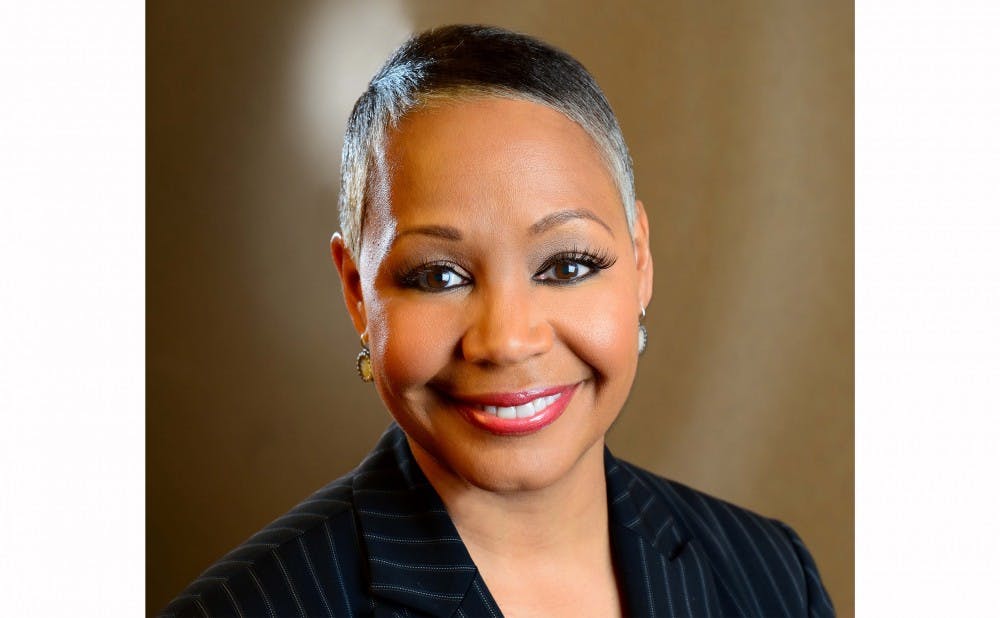Lisa Borders, Trinity ’79, is the former vice President of Global Community Affairs at the Coca-Cola Company and a member of the Duke Board of Trustees. On March 21, Borders began her role as the fourth president of the WNBA, where she will report to fellow Duke alum and NBA commissioner Adam Silver, Trinity ’84. The Chronicle’s Cassie Calvert spoke with Borders about her perspective on the WNBA and memories of Duke. Their conversation has been condensed for clarity.
The Chronicle: You were instrumental in bringing the Dream to Atlanta as City Council president—why was adding a WNBA franchise important?
Lisa Borders: I ended up taking a lunch meeting that Mayor [Shirley] Franklin could not take. [The WNBA] president at that time was a woman by the name of Donna Orender and she came to pitch the idea of Atlanta having a team. She talked about the media market that we had, the number of schools that we had, feeders to the pipeline of the league. She made a very compelling case not only for basketball, but specifically for women’s sports.… Atlanta’s the cradle of the Civil Rights movement—we believe that everybody [should have] an equal opportunity and equal access. So this was an opportunity for women to follow their dream and play as professional athletes.
TC: What are your main goals for the league as president?
LB: This is our 20th year, so we want to celebrate what’s been done. That’s huge. Two decades in existence and the incremental progress is not to be understated. But when you think of a 20-year-old…[they’ve] lived for a long time, done some terrific things, had some terrific experiences but the best part of [their] life is probably in front of [them]…. I would submit to you that that’s exactly where we are with the WNBA. We’re thrilled we have lived for 20 years, but this is just the tip of the iceberg.
TC: What was the principal reason that you wanted to be president of the WNBA?
LB: Supporting women, it’s that simple. I happen to be a woman. There’s no place in the world that women are on equal footing as men, except in the cabinet in Canada. The prime minister said that it will be 50-50 in his cabinet—half men and half women. Someone asked him, ‘Why did you do that?’ He said ‘Because it’s 2015.’ Right? It’s like ‘Duh?’ I have the opportunity at this point in my life to choose exactly what I want to do and it’s to support women. By supporting women…you actually help everybody. When you support women, women always reinvest.… It’s a great investment when you invest in women because you lift all boats.
TC: You’ve said your love of basketball began as an undergrad at Duke, what drew you to the sport?
LB: [Basketball] was not the culture when I was there. Coach K came in [1980]; I graduated in 1979. [Jim] Spanarkel was in my class. Mike Gminski—as we call him, G-man—was the year behind me. Kenny Denard and Gene Banks came in that third year—which was my junior year—and that was the year we went to the finals. We lost to Kentucky—that night was a heartbreaker—but we were the Cinderella team. We were just beginning to build the foundation for the dynasty that we see today. So I was drawn to the game because it’s an easy game to understand. We didn’t have Krzyzewskiville, or to sleep outside for a month or a week or whatever you guys are doing now. We were not the Cameron Crazies. We were not painting our faces. But we were surely going to the games cheering for our friends.
TC: What lessons that you learned at Duke have you seen pay off in your career?
LB: The notion of perseverance. When I started at Duke, I started as a science major. Like many people who come there, I wanted to go to medical school and follow in my father’s footsteps. I learned that I liked science and medicine, but I didn’t love it. But I was able to change majors, graduate and have a very successful life. Duke taught me to persevere regardless of if I was not successful in the first path. This is the way my mother explained it: ‘Failure is not fatal. It’s feedback.’ The example I would give is that I did not become mayor even though I ran for that office after being vice mayor. But if I had been mayor, I would not have been available when the job at Coca-Cola became open. If I hadn’t gotten the Coca-Cola job, I wouldn’t have traveled all over the world and been able to help all the people that we were able to help through the company’s foundation.… You learn more from your failures than from winning. When you win, you do the Snoopy dance, but when you lose, you have to figure out what happened and fix it and go back and try again.
TC: Is there anything else you’d like to add that we didn’t touch on?
LB: The only thing I’d like to add is that I would like to invite all the Duke students to come out and see a game, because I think they would really get hooked on the WNBA. If they can’t come to a game or they don’t live in a city where there’s a team, they can watch us on ESPN…[or] on the NBA platform called Season Pass which they can download on their phone. And I know every Duke student’s got a mobile phone.

